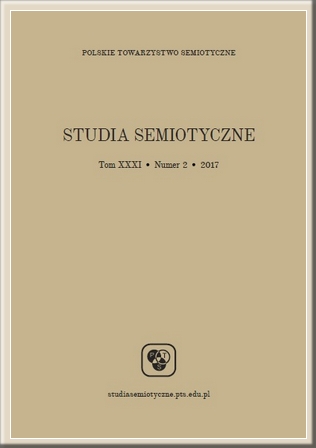Abstract
DOI: http://doi.org/10.26333/sts.xxxi2.03
The concept of intentional identity has aroused considerable interests since Geach (1967). I argue, however, that the real import of intentional identity is still not duly appreciated. Drawing on three sets of close-knit data – intersubjective and intrasubjective intentional identity, along with cross-speaker anaphora, I submit coordination as the key to its proper understanding and propose a set of success conditions thereof.
References
Asher, N. (1986). Belief in Discourse Representation Theory. Journal of Philosophical Logic, 15, 127–189.
Asher, N. (1987). A Typology for Attitude Verbs and Their Anaphoric Properties. Linguistics and Philosophy, 10(2), 125–197.
Azzouni, J. (2010). Talking about Nothing: Numbers, Hallucinations, and Fictions. Oxford: Oxford University Press.
Braun, D. (2012). Hob, Nob, and Mythical Witches. In W. Kabasenche, M. O’Rourke and M. Slater (Eds.), Reference and Referring (pp. 149–187). Vol. 10. of Topics in Contemporary Philosophy. Cambridge, MA: MIT Press.
Burge, T. (1983). Russell’s Problem and Intentional Identity. In J. E. Tomberlin (Ed.), Agent, Language, and the Structure of the World: Essays Presented to Hector-Neri Castaneda with his Replies (pp. 79–110). Indianapolis, Ind.: Ridgeview Publishing.
Cohen, L. J. (1968). Geach’s Problem about Intentional Identity. Journal of Philosophy, 65, 329–335.
Crane, T. (2012). The Objects of Thought. Oxford: Oxford University Press.
Dekker, P. and van Rooy, R. (1997). Intentional Identity and Information Exchange. In Second Tbilisi Symposium on Language, Logic, and Information.
Edelberg, W. (1992). Intentional Identity and the Attitudes. Linguistics and Philosophy, 15(6), 561–596.
Edelberg, W. (2006). Intersubjective Intentional Identity. Journal of Philosophy, 103(10), 481–502.
Geach, P. T. (1981). Logic Matters (2nd edn). Oxford: Basil Blackwell.
Geach, P. T. (1967). Intentional Identity. Journal of Philosophy, 64(20), 627–632.
Kamp, H., van Genabith J., Reyle, U. (2011). Discourse Representation Theory. In D. M. Gabbay and F. Guenthner (Eds.), Handbook of Philosophical Logic (Vol. 15). Springer.
Kripke, S. (1979). A Puzzle about Belief. In A. Margalit (Ed.), Meaning and Use (pp. 239–283). Dordrecht: Reidel.
Maier, E. (2015). Parasitic Attitudes. Linguistics and Philosophy, 38, 205–236.
Maier, E. (2016). Referential Dependencies Between Conflicting Attitudes. Journal of Philosophical Logic 46(2), 141–167.
Moltmann, F. (2006). Unbound Anaphoric Pronouns: E-type, Dynamic, and Structured Propositions Approaches. Syntheses Volume, 153(2), 199–260.
Murez, M., Récanati, F. (2016). Mental Files: an Introduction. Review of Philosophy and Psychology, 7, 265–281.
Pagin, P. (2014). Intersubjective Intentional Identity. In M. García-Carpintero and G. Martí (Eds.), Empty Representations: Reference Non-Existence (pp. 91–113). Oxford University Press.
Parson, T. (1974). A Prolegomenon to Meinongian Semantics. The Journal of Philosophy, 71(16), 561–580.
Priest, G. (2005). Towards Non-being: The Logic and Metaphysics of Intentionality. Oxford: Oxford University Press.
Putnam, H. (1975). The Meaning of ‘Meaning’. In Mind, Language and Reality. Philosophical Papers. Vol. 2 (pp. 215–271). Cambridge: Cambridge University Press.
Récanati, F. (2012). Mental Files. Oxford University Press.
Récanati, F. (2014). Empty Singular Terms in the Mental File Framework. In M. García-Carpintero and G. Martí (Eds.), Empty Representations (pp. 165–182). Oxford: Oxford University Press.
Récanati, F. (2016). Mental Files in Flux. Oxford: Oxford University Press.
Roberts, C. (1996). Anaphora in Intensional Contexts. In The Handbook and Contemporary Semantic Theory. Basil Blackwell.
Saarinen, E. (1982). Intentional Identity Interpreted: A Case Study of the Relations among Quantifiers, Pronouns and Propositional Attitudes. In E. Saarinen (Ed.), Game-Theoretical Semantics (pp. 245–327). Dordrecht: Reidel.
Salmon, N. (2002). Mythical Objects. In Metaphysics, Mathematics, and Meaning (pp. 91–207). Oxford: Oxford University Press.
Strawson, P. F. (1952). Introduction to Logical Theory. London: Methuen.

